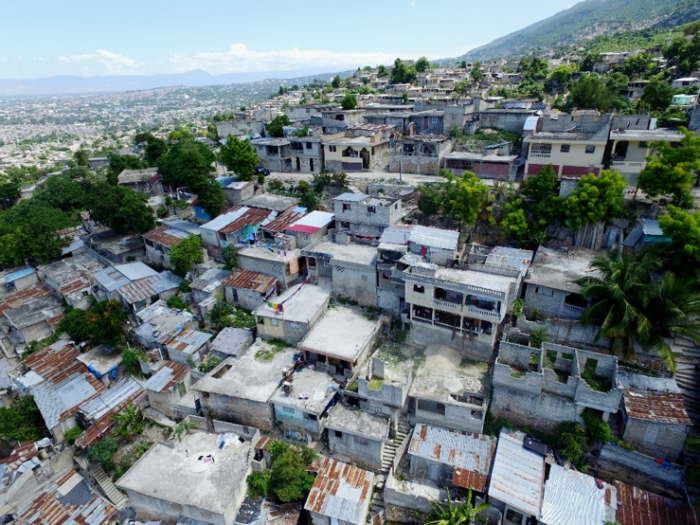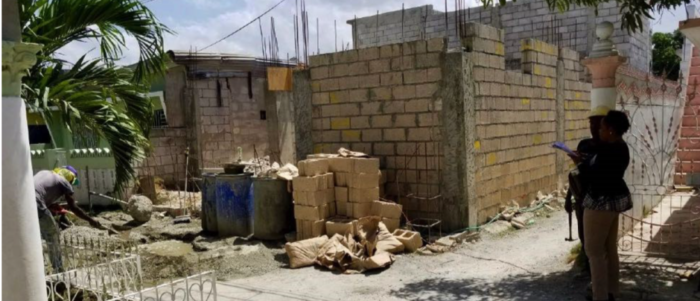Authors: Dr. Elizabeth Hausler, founder and CEO of Build Change
Co-authors: Thomas Moullier, Louisa Helen Barker, Michael Collins, Saurabh Dani

May 31st, the last day of the upcoming Understanding Risk Caribbean Conference, also marks the opening of the 2019 hurricane season. As conference attendees meet in Barbados, homeowners throughout the Caribbean will be checking their storm shutters, adding nails to their roofs and changing the batteries in their radios. Many are still recovering from the unprecedented 2017 hurricane season, which hit the region’s GDP harder than the Ebola crisis hit West Africa. Many who weren’t affected will still be at significant risk. In fact, it’s estimated that more than 60% of the urban population in the Caribbean lives in substandard, informally built houses that are highly vulnerable to the effects of earthquakes and hurricanes. So, as Caribbean countries once again brace for impact, it’s an important moment to reflect on the continued investment that is needed across the region. This is critical not only to recover adequately from past devastation (as highlighted in the ‘Build Back Better ’ campaign), but to prepare for earthquakes and stronger and more frequent storms in the future (Build Better Before).
If there is a silver lining to the 2017 hurricane season, it’s that it has brought a renewed sense of urgency that some countries are using to undertake bold action. In Jamaica for example, new laws have recently been passed, such as the Building Act 2018, and important improvements have been made to the Jamaican National Building Code (JNBC). While these two initiatives have been in the works for many years – a testament to the Government of Jamaica’s steadfast commitment to reducing risk in the built environment- it is recent events that have brought about the consensus needed to get them passed. Building on this political will, financial and technical support has also come from the Building Regulation for Resilience Program, and the Japan World Bank Program for Mainstreaming Disaster Risk Management in Developing Countries, administered by the Global Facility for Disaster Reduction and Recovery (GFDRR). These developments have spurred further important steps. Recently, the Government of Jamaica partnered with the World Bank Building Regulations for Resilience (BRR) Department and Build Change to gain a deeper understanding of the informal construction sector in Jamaica. This has resulted in outline strategies that will help meet some of the most important technological, financial and social challenges low-income “informal” communities face.
Results from the recent “Jamaica Informal Building Sector Study“, complete with support from GFDRR, through the Japan-World Bank Program, will be key in guiding future resilience-building measures. Omar Sweeney, the Managing Director of the Jamaican Social Investment Fund (JSIF), comments on the report: “The building of sustainable and resilient communities is at the center of JSIF’s mandate, and so the work to promote, increase and build capacity in the informal building sector is critical. Communities which are fully integrated in the disaster risk reduction agenda will enhance the effectiveness of the regulatory initiatives within Jamaica. We will be using this report to inform our efforts and welcome it’s wider use throughout the Caribbean.”

So, what better moment than the start of a new hurricane season to move from understanding risk to dramatically reducing it? When completing the joint research for the Jamaica study, Build Change along with World Bank colleagues unearthed a treasure trove of old Caribbean resources that revealed an outstanding body of regional knowledge, some of which dated back over 30 years. So let’s apply what we’ve already learned to build regulatory capacity, such as through the World Bank’s Building Regulation for Resilience Program (BRR). Let’s continue to build political will and facilitate the investment necessary to train construction professionals, open technical resource centers, improve access to construction financing, use technology to communicate risk, and simplify the permitting, design and supervision process. Let’s share the knowledge we have accumulated with the insurance industry, and partner with them to lower the risk both for homeowners and governments. If past hurricane seasons are any indication, we have no time to lose.
About the Author
Dr. Elizabeth Hausler is the Founder and CEO of Build Change and a global expert on resilient building and post-disaster reconstruction. Elizabeth’s strategic direction and leadership have grown the organization from a few employees in 2004 to over 230 strong working on three continents in 2018. Her emphasis on rebuilding to withstand future disasters has distinguished Build Change from its peers, won international honors and profoundly influenced global development policy by making resilience a major consideration in an era of ever-increasing disaster risks.
